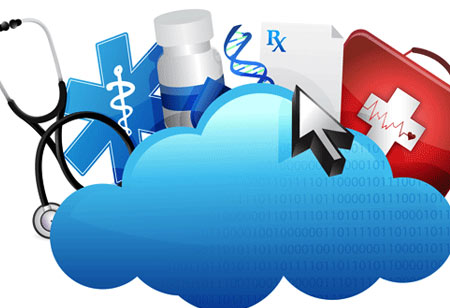THANK YOU FOR SUBSCRIBING
Key Benefits of Cloud Computing for Healthcare
Cloud infrastructure will facilitate the transition of artificial intelligence into conventional healthcare operations and help users handle vast volumes of data as more and more cloud providers incorporate AI and ML into their services.

By
Apac CIOOutlook | Wednesday, December 30, 2020
Stay ahead of the industry with exclusive feature stories on the top companies, expert insights and the latest news delivered straight to your inbox. Subscribe today.
Cloud infrastructure will facilitate the transition of artificial intelligence into conventional healthcare operations and help users handle vast volumes of data as more and more cloud providers incorporate AI and ML into their services.
Fremont, CA:The democratisation of data and its remote accessibility frees up providers and patients in an industry where a large amount of data is generated daily, breaking down geographical constraints on access to healthcare.
How are they doing that? Let's take a look at the advantages of cloud computing in the medical sector to help address this issue.
Collaboration
With healthcare organisations moving towards payment methods for value-based treatment, cooperation between physicians, agencies, and even institutions is important. Via a cloud computing server, medical professionals can share data to each other, improving collaboration for better care.
Machine Learning and Artificial Intelligence
It's in healthcare, if there's one area where AI can be intimidating. But AI and machine learning technologies can be a critical solution to help clinical decisions and, consequently, a faster time-to-treatment with the tight schedules of medical professionals—and now more than ever, as the world continues to battle a global pandemic—and with the sophistication and rise of data.
See Also: Top Healthcare Solution Companies
Cloud infrastructure will facilitate the transition of artificial intelligence into conventional healthcare operations and help users handle vast volumes of data as more and more cloud providers incorporate AI and ML into their services.
Storing Data
Electronic medical records, patient portals, mobile applications and big data analytics have to be dealt with by healthcare providers. That's a lot of data to handle and analyse, and it can not be processed by all in-house facilities.
Cloud computing enables healthcare organisations to store all the information while eliminating unnecessary physical server maintenance costs.
Scalability
Cloud infrastructure allows healthcare providers the ability to increase or decrease their data storage based on the flow of patients, unlike traditional self-hosted models.
This way, healthcare facilities can adjust their technology to peak seasons without spending time and resources on the new hardware acquisitions or software upgrades, such as the flu season, where the number of patients rises.





